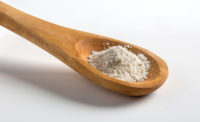
BUSINESS WIRE

Marble Slab Creamery
Long recognized for providing a jolt of energy, a growing body of scientific research shows that coffee, when consumed in moderation (four to five regular size cups a day) is safe for healthy adults and can even have beneficial health implications as part of a healthy diet and physically active lifestyle. These benefits transfer to foods and beverages made with high-quality coffee ingredients.
Overall, research to date shows that coffee is far more healthful than it is harmful, which is the reputation it had a mere 50 years ago. Studies have shown that a few cups of java daily might protect against diabetes, liver cancer, cirrhosis, Parkinson’s disease, as well as Alzheimer’s.
More than 20 studies worldwide show that coffee, both regular and decaf, lowers the risk for type-2 diabetes by as much as 50%. Researchers say that is probably because chlorogenic acid, one of the many ingredients in coffee, slows uptake of sugar from the intestines.
It’s the caffeine in coffee, which has long been recognized as a stimulant, gaining notoriety among those who study Alzheimer’s disease. When aged mice bred to develop symptoms of Alzheimer’s disease were given caffeine - the equivalent of five cups of coffee a day - their memory impairment was reversed, according to University of South Florida (USF) researchers at the Florida Alzheimer’s Disease Research Center (ADRC).
Back-to-back studies published in 2009 in theJournal of Alzheimer’s Diseaseshow caffeine significantly decreased abnormal levels of the protein linked to Alzheimer’s disease, both in the brains and in the blood of mice exhibiting symptoms of the disease. Both studies build upon previous research by the Florida ADRC group showing that caffeine in early adulthood prevents the onset of memory problems in mice bred to develop Alzheimer’s symptoms in old age.
“The new findings provide evidence that caffeine could be a viable ‘treatment’ for established Alzheimer’s disease, and not simply a protective strategy,” says lead author Gary Arendash, a USF neuroscientist with the Florida ADRC. “That’s important because caffeine is a safe drug for most people, it easily enters the brain, and it appears to directly affect the disease process.”
Based on these promising findings in mice, researchers at the Florida ADRC and Byrd Alzheimer’s Center at USF hope to begin human trials to evaluate whether caffeine can benefit people with mild cognitive impairment or early Alzheimer’s disease. The research group has already determined that caffeine administered to elderly non-demented humans quickly affects their blood levels of beta-amyloid, which are sticky clumps of abnormal protein in the brain that builds up to form plaques, impairing cognitive function.
“These are some of the most promising Alzheimer’s mouse experiments ever done showing that caffeine rapidly reduces beta-amyloid protein in the blood, an effect that is mirrored in the brain, and this reduction is linked to cognitive benefit,” says Huntington Potter, director of the Florida ADRC and an investigator for the caffeine studies. “Our goal is to obtain the funding needed to translate the therapeutic discoveries in mice into well-designed clinical trials.”
Arendash and his colleagues became interested in caffeine’s potential for treating Alzheimer’s several years ago, after a Portuguese study reported that people with Alzheimer’s had consumed less caffeine over the last 20 years than people without the neurodegenerative disease. Since then, several uncontrolled clinical studies have reported moderate caffeine consumption may protect against memory decline during normal aging. The highly controlled studies using Alzheimer’s mice allowed researchers to isolate the effects of caffeine on memory from other lifestyle factors such as diet and exercise, according to Arendash.
What does this mean for dairy processors? Like with many functional ingredients, dairy foods serve as an ideal delivery vehicle for value-added nutrition. Further, coffee and milk have long been the perfect match. Dairy foods formulators would be wise to remember to pursue the use of high-quality coffee ingredients in their product development endeavors. Don’t forget…write it down in your notebook.


